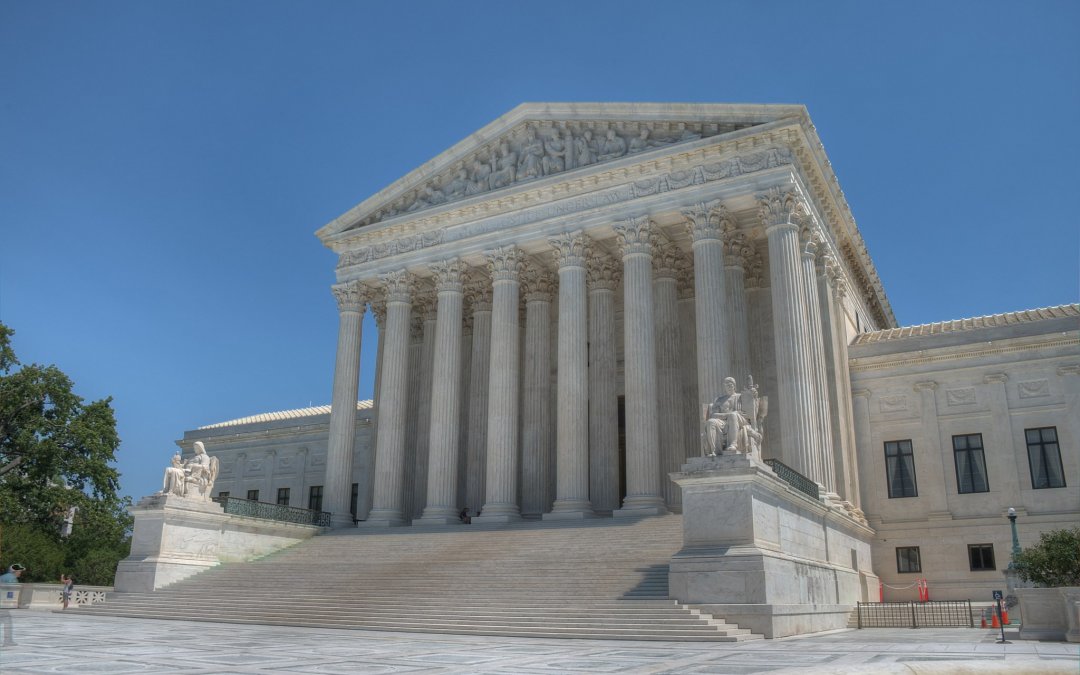WASHINGTON – The U.S. Supreme Court appeared tense Wednesday amidst oral arguments for long-time Oklahoma death row inmate Richard Glossip’s request for a new trial. Glossip seemed likely to receive at least another day in court.
The arguments presented by the prosecution were composed of an unlikely alliance between lawyers for Glossip and the state, arguing that Glossip, represented by former solicitor general Seth Waxman, did not receive due process and a fair trial after Oklahoma Republican Attorney General Getner Drummond uncovered evidence that prosecutors hid critical information after conducting an independent investigation.
“I don’t know if admirable is the right word, but it’s unique that [Drummond] is taking the responsibility unto himself personally,” Executive Director of Death Penalty Action Abe Bonowitz said.
A decision leading to Glossip’s conviction being thrown out could cause Oklahoma to rethink its approach to capital punishment. Oklahoma is currently one of the most active states with the death penalty, with 14 inmates executed since 2021, according to chair of the Oklahoma Coalition to Abolish the Death Penalty Rev. Don Heath.
Glossip was first convicted and sentenced to death in 1998 for orchestrating the murder of his boss, Barry Von Treese, in 1997. The case was largely based on the testimony of Justin Sneed, who physically carried out the killing.
Among the evidence Drummond disclosed was that Sneed withheld from Glossip’s lawyers that he received psychiatric treatment for bipolar disorder, and that prosecutors failed to correct a statement Sneed had made about his prescription, which called into question Sneed’s credibility.
His execution has been halted eight times as new developments and questions regarding Sneed’s testimony have kept his case in the court for nearly two decades.
Paul Clement, a former U.S. solicitor general who represented the Oklahoma attorney in this case, stated that though Drummond continues to “defend multiple capital decisions,” he “regretfully reached a decision” after these discoveries.
There is “reasonable probability of [the evidence] leading to a different result,” Clement said on Wednesday, in response to a question from Justice Brett Kavanaugh.
Kavanaugh, along with his three other liberal colleagues, seemed to agree and raised concerns about Sneed’s credibility. He said Sneed “lied on the stand.”
Justice Elena Kagan joined his sentiments and was the most vocal in her critique of the state’s argument, represented by private attorney Christopher Michel.
“You’ve indicated a strong critique of this opinion,” Michel said to Kagan.
“I haven’t even started,” Kagan said, met with a chorus of laughs from the pews. “Your one witness was exposed as a liar.”
Justices Samuel Alito and Clarence Thomas seemed more inclined to uphold the Oklahoma Circuit Court of Appeals’ decision. Both conservative justices have indicated clear favorability toward the death penalty in past decisions.
Thomas was the first to question Waxman’s argument declaring the “court should reverse [the decision] and remand a new trial,” asking him why had not interviewed the two prosecutors who are “central to this case.”
For Oklahoma, the stakes remain high. The court tackled two fundamental issues on Wednesday: whether a Brady violation occurred, when the prosecution withholds evidence, and whether a Napue violation occurred, when the prosecution knowingly uses false testimony in a criminal case.
Though a final decision is not entirely clear, Justice Ketanji Brown Jackson asked Michel if he would “object to a evidentiary hearing,” indicating that immediate affirmation of the Oklahoma courts’ decision is unlikely.
The decision is left to only eight of nine justices as Justice Neil Gorsuch did not participate in the case. A 4-4 tie would affirm the Oklahoma court’s decision.
A decision is expected by early next summer.

